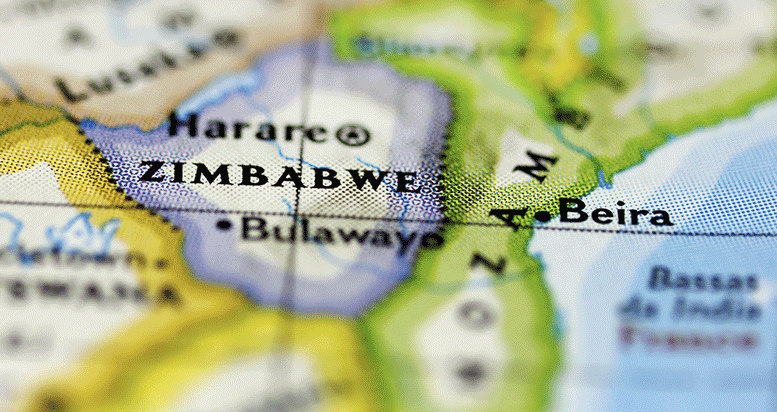Amended legislation in Zimbabwe has removed industrial hemp from the country’s list of dangerous drugs and set the defining line between marijuana and hemp at 1.0%.
The legislation, the Criminal Law Amendment Bill 2022, is intended to open up the market to a wider range of hemp genetics and business in local seed research, development and production in addition to expanded options for farmers.
An increased THC level gives industrial hemp farmers greater production efficiency for CBD because CBD rises in hemp plants in proportion to THC. Most of the world operates on a 0.3% THC limit. The changes will also mean Zimbabwe farmers won’t have to worry about their crops going over the THC threshold.
The amendment expands prospects for importing germplasm and research that can lead to new varieties optimally adapted for Zimbabwe’s growing conditions, the government said.
Joining the 1% club
Zimbabwe joins Australia, Ecuador, Malawi, Switzerland, Czech Republic and Uruguay in increasing the THC level allowed in industrial hemp from 0.3% to 1%.
According to the law amendment: “Industrial hemp means the plant cannabis sativa L and any part of that plant, including the seed thereof and all derivatives, extracts, cannabinoids, isomers, acids, salts and salts of isomers, whether growing or not with a delta-9-tetrahydrocannabinol concentration of not more than one per centum on a dry weight basis.”
Zimbabwe opened up the domestic market for CBD as a traditional herbal medicine last year, expanding upon previous laws which had allowed production only for export.
New CBD products are currently being tested by the Medicines Control Authority (MCA) of Zimbabwe, which the government hopes will enhance their acceptance by consumers and ensure the quality of exports.
Government’s plan for hemp
The government sees industrial hemp as a replacement for the country’s falling prospects in tobacco, which makes up roughly 20% of Zimbabwe’s exports. Contraction in the tobacco industry has contributed to stagnation which has beset the country’s economy for nearly two decades despite the African nation’s vast wealth of natural resources.
Zimbabwe’s Tobacco Research Board (TRB) was given a directive to make reforms by 2025 and has established itself as the center for national research, development and innovation in tobacco and “alternatives and alternates,” which apparently includes hemp. TRB has been testing and developing hemp varieties for adaptation to Zimbabwe’s climatic conditions over the last few years.
Industrial hemp has been identified as a crop of interest in the government’s Vision 2030 program, which aims to advance agricultural profitability and rural development.
Liberalizing, step-by-step
Zimbabwe legalized medical cannabis in 2018, making it among the first countries in Africa to do so. A year later, the country removed a ban on cannabis cultivation, allowing farmers to begin growing hemp for export.
Only hemp and medical marijuana operators can open legal cannabis businesses under Zimbabwe’s cannabis laws. The MCA continues to accept applications from cannabis and hemp producers, manufacturers, importers, exporters, and retail pharmacists.
Cultivation, processing, transportation and other aspects of the hemp production chain are heavily regulated in Zimbabwe.
The Zimbabwean government initially planned to manage hemp under state ownership, but later revised its strategy to encourage investment in the cannabis sectors. A loosening of regulations in 2021 drew investors from Germany, Switzerland and Canada which received cultivation and processing licenses.
The Medicines Control Authority of Zimbabwe and the Ministry of Lands cooperate with the Zimbabwe Investment and Development Agency in the administration of the country’s cannabis business, and share authority for regulatory requirements. The government has established the Zimbabwe Industrial Hemp Trust (ZIHT), a development initiative set up to assist farmers in starting up hemp operations, and to look for new export markets for their hemp outputs.
Read the full article here









